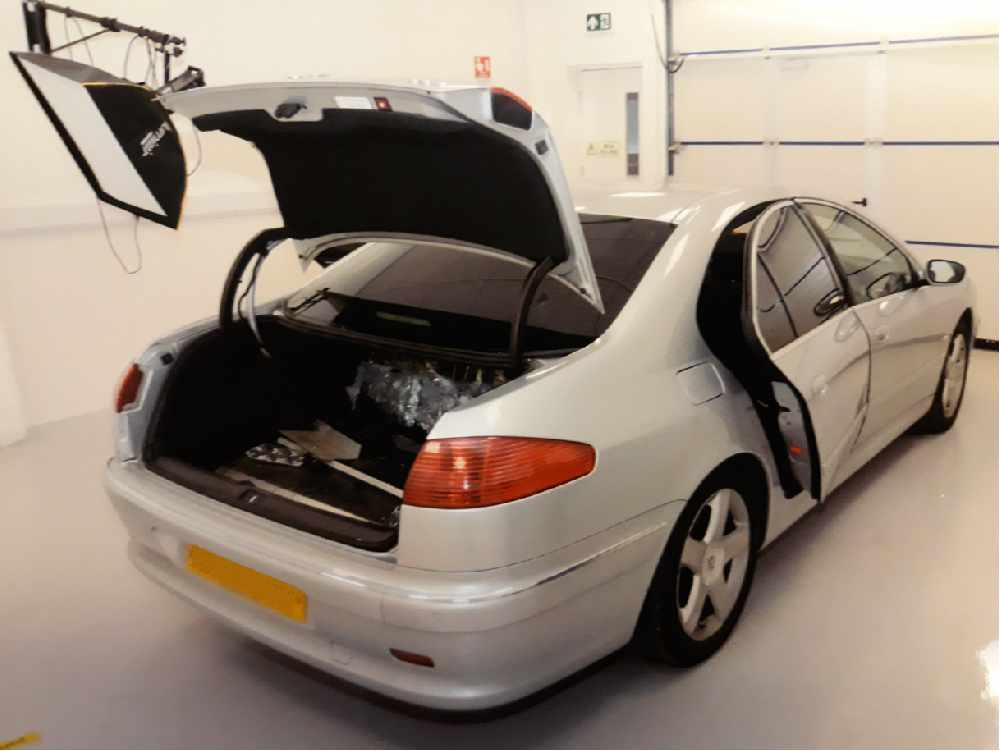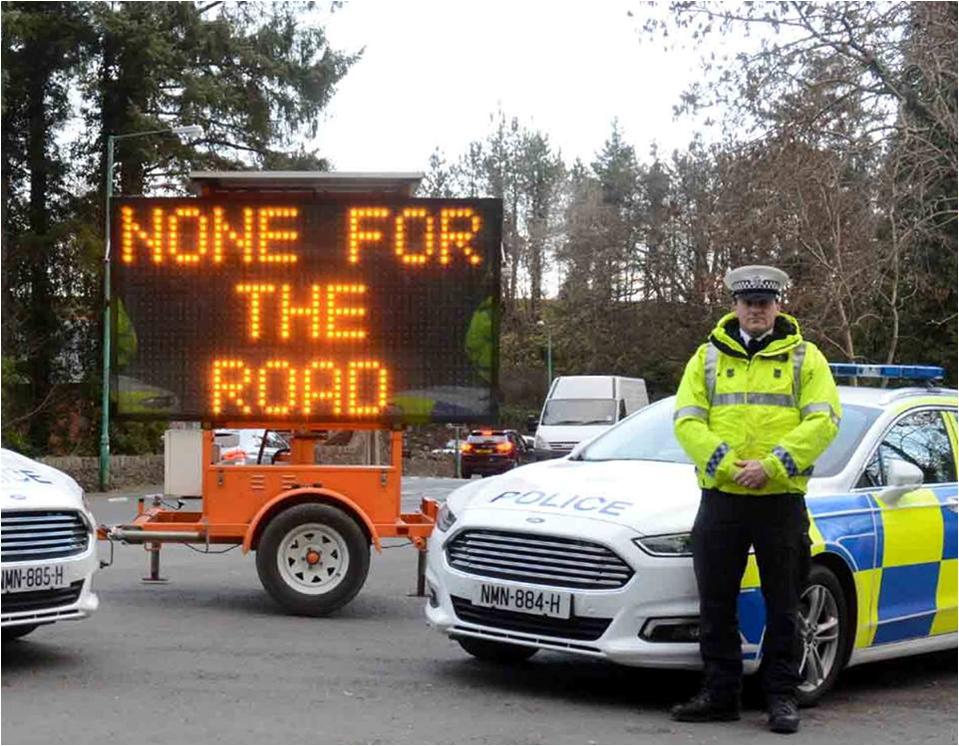
Gary Roberts will spend £2.5 million on drug trafficking, neighbourhood policing
For many years, the Department of Home Affairs had told the constabulary not to waste time writing business cases to Treasury for more funding, because there simply wasn't the money there for it.
But in the last 12 months, Home Affairs Minister Bill Malarkey, on behalf of the police, made the case for investment to be made, because 'cracks' were now starting to appear.
Cracks, which Chief Constable Gary Roberts says he had predicted.
"We've become very good with doing a lot, with little." he told Manx Radio, "but the point was coming, where we were in danger of not properly policing community issues."
Mr Roberts has made no secret of these fiscal conditions that the constabulary has 'become used to working in', highlighting his concerns in his annual report.
Here, he underlined a worrying increase in the number of young offenders, a rise in organised drug gangs coming to the Island, higher levels of violence and more crimes being reported on Manx roads.
Prior to this year's budget, he made a number of business cases to enable his force to address these issues and his message was simple.
"Economically a big driver of commercial activity is safety and people want to live and work in a place that's safe."
It was this argument, or the 'crux' of what he pitched to treasury officials, was what 'won the day', a case strongly made in the 2017/18 report where he championed the virtues of neighbourhood policing, calling it 'key to the social welbeing of this Island.'
The 2019 Budget or 'Pink Book' as it is known, has since allocated funds to develop police headquarters in Douglas, a building which is some 40 years old. These improvements are part of the ongoing process to ease pressures on centralised policing.
Treasury has also made provision for the replacement of police equipment such as uniform, body armour, forensic kits and defensive equipment.
But with £2.5 million now at his disposal, the chief constable is planning a number of wholesale investments.
Along with spending more on training for his officers, which had a 'wholly inadequate' budget of £52,000 in his words, and more on his Public Protection Unit to intervene with the 'insidious' coercive control that is so often associated with domestic abuse cases, he can finally draw up a shopping list.
'Double the number of officers' to stop drug trafficking

This month, police revealed they had seized over £1 million from a single drug gang in Liverpool, over the course of an operation which has been ongoing for the last year.
The seizure of drugs, cash and property and the subsequent six arrests that were made was further evidence of the so-called 'county lines' spreading across the Irish Sea, drug running which, according to the chief constable, has been affecting the Isle of Man for the best part of a century.
There are currently five full-time members of the constabulary's Pro-Active Unit, a mere 'handful of officers' in the words of Gary Roberts, a number which he now plans to double.
"I'm not talking about catching people with a bit of cannabis for personal use, this is about stopping Class A drugs from coming in."
"The market over here is lucrative, so that when we take people out of that market, we take suppliers out of it, other people try to fill the gap.
"That's how organised crime works.
"But we have to remember why we're doing it, because the Class A drugs in particular, kill people.
"So if we can stop five young people in a year, dying through drugs then all of that effort is worthwhile."
The chief constable also commends the 'strong links' the Island's police has with its neighbouring forces - Merseyside and Lancashire, and in particular the North West Regional Organised Crime Unit, a body which he says 'straddles' the police service in the North West.
"We have done some very good work with them and they are incredibly keen to help us.
"What we have to bear in mind is, that the people who supply the drugs here to us on the Isle of Man are the people, who in the North West of England, are carrying out some serious crime, both to fund that drug trafficking but also to maintain their own position."
Creating neighbourhood 'specialists'
Following cuts to the service since 2008 and the closure of the Lord Street police station, Gary Roberts has vowed to reinvent neighbourhood policing.
He says "instead of having officers who do some neighbourhood work and respond to crashes, to fights in pubs and to reports of theft, I'm going to create teams of pure neighbourhood police officers."
'"They will only do community work. They'll work in schools, they'll work with elderly people, abuse victims, offenders.
"They will be the people, with other public service bodies, that identify these young people in particular who are at risk, either of being offended against or of offending and get in and stop that, before it starts.
"I want to see them being specialised in their work as detectives, and I want them to work with partners, work with [Department of] Health, work with [Department of] Education, and social workers to see the people who are most at risk and put in place the things that best protect them".
When he comes to write his annual report for the year end this month (March), Mr Roberts says he will highlight the 'big impact' of the two mental health professionals currently stationed with the Constabulary at its Douglas headquarters.
The two nurses, who have expertise in dealing with people in crisis, are part of a joint programme with Department of Health and Social. They make up what is known as the Police Mental Liasion Service.
"They have had a very positive impact both on how police officers work, but also on the service that very ill and vulnerable people receive.
"We are waiting on a third worker, but the funding for that is temporary."
He hopes to meet with the DHSC head of community mental health, Angela Murray, to see how he can secure the provision for the service going into 2021 and beyond.
IT upgrade for Economic Crime Unit
In order to make his ECU better at fighting international crime, money will now be spent on upgrading the way it functions.
Currently, officers are faced with an 'imbalance' of resources, following a somewhat 20th century approach.
"At the moment officers in economic crime have very high workloads, but some of that workload is avoidable because they sit sifting through paper.
"So, we can get a production order from a court which requires people to give us documents. We can get hundred of thousands or even millions of pages in documents which officers have to sift, manually."
Thus, investment will be made in a modernised computer system which will allow for an automatic 'search and sift' to scan for the necessary data.
This, he says, will save 'hours and hours of time, enabling officers to be more effective'.
Bigger road policing presence

The government's Road Safety Strategy says there should be more enforcement in order to make Manx roads safer.
The police will now be able to assist with that pledge by increasing the presence of officers at the side of the road with speed devices.
Following widespread support in Tynwald, the document has set out to reduce serious and fatal accidents by 40% by gathering statistics, enforcement of existing laws and by education.
"The public might not like it at first" admits the chief constable, "but it is something they will have to get used to."


 More than 3,000 jobs added to economy since September 2021
More than 3,000 jobs added to economy since September 2021
 Review of income thresholds for public sector housing
Review of income thresholds for public sector housing
 Firearms officers deployed to incident near Laxey
Firearms officers deployed to incident near Laxey
 A step into the modern era for social security
A step into the modern era for social security
 Attempted burglary in Ramsey sparks appeal
Attempted burglary in Ramsey sparks appeal
 Two Manx high schools told to stop operating CCTV 'inside' toilets
Two Manx high schools told to stop operating CCTV 'inside' toilets
